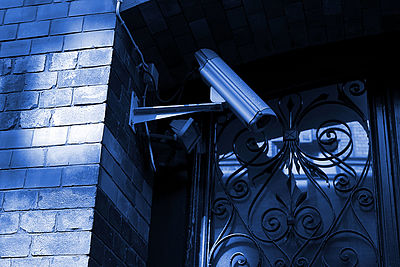CCTV
(mass surveillance) | |
|---|---|
 | |
Contents
Official narrative
CCTV is originally about monitoring people for their own sake. Crime prevention is a
Justification
The introduction is often justified with vague claims about crime prevention, though evidence on the actual impact of CCTV in this regard is lacking.
Control
CCTV evidence, although it could be made publicly available, for example, by being live streamed to the internet, is generally under the control of the few who set up the systems. Even where these are public authorities, spending public money and nominally acting for the good of the public because it is controlled by a central authority, the footage tends to remain under tight control, only released on an ad hoc basis when it suits the purposes of those who set up the cameras.
'Missing CCTV' footage
The widespread use of CCTV could provide valuable evidence in the case of acts of terrorism, though it is more notable for is absence in this respect. Specifically, in the following instances:
- 7 July 2005 London bombings - Verint systems took control of London Transport's CCTV 10 months before the attacks, and have so far not released any footage. They claim that none of the relevant cameras were working. Some frames of CCTV have been released showing the alleged bombers, although its authenticity and relevance is disputed.
- 9-11/Pentagon - The FBI moved quickly to confiscate all CCTV footage from nearby cameras for reasons of "National security". None has ever been released. Of the Pentagon's (presumably many) CCTV cameras, footage from only a single camera has been released[When?] - and that is missing a crucial frame.
- Diana Princess of Wales/Death - No CCTV footage of the crash has been made available. It is unclear whether any exists.
Rating
A very short page, but one with many links to deep events in which CCTV footage was unavailable, lost or falsified.